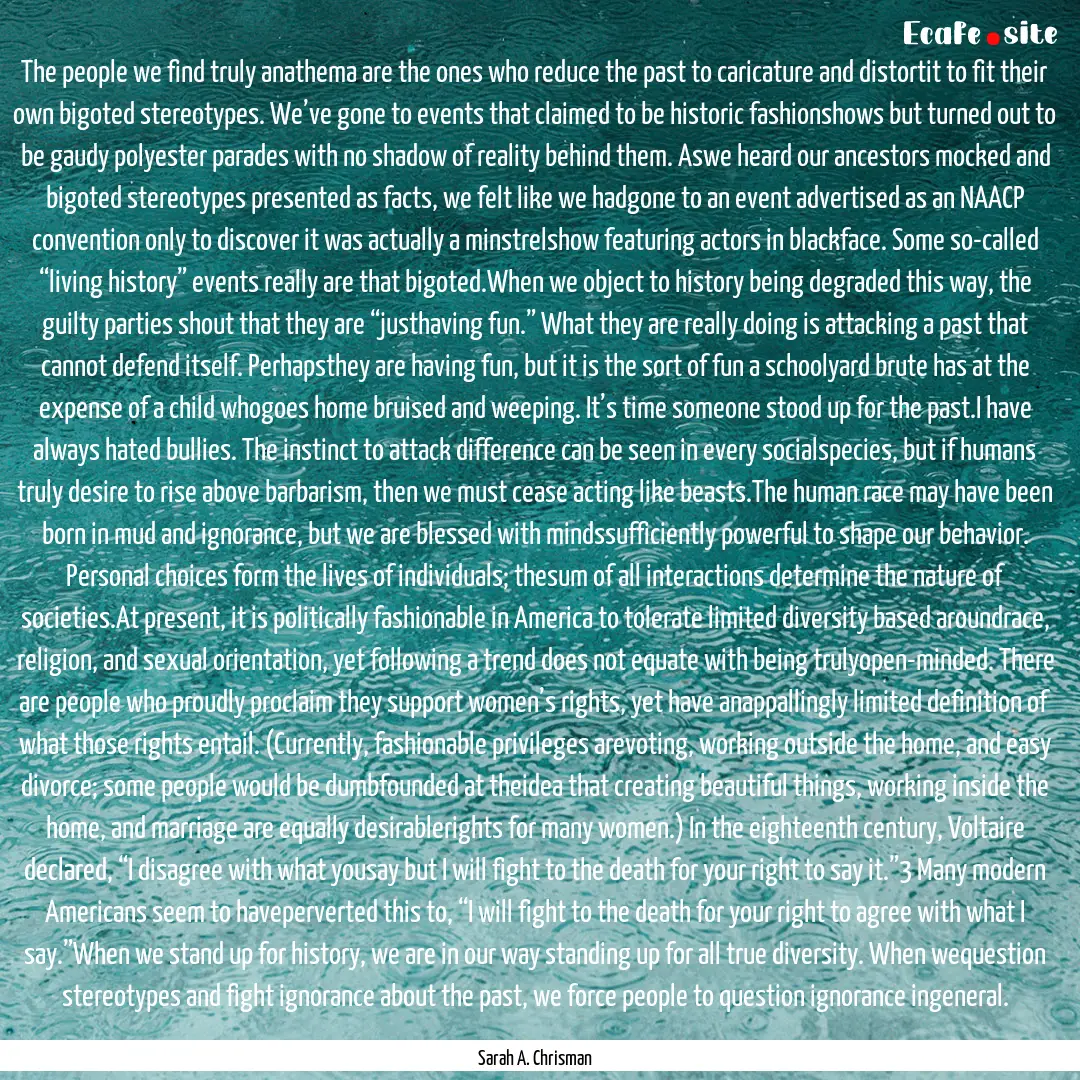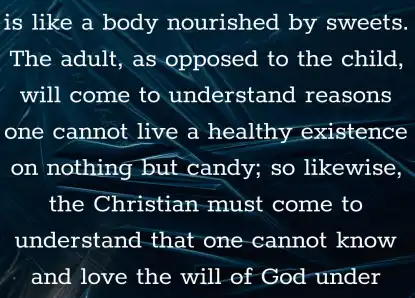
Report, if you have a problem with this page“ The people we find truly anathema are the ones who reduce the past to caricature and distortit to fit their own bigoted stereotypes. We’ve gone to events that claimed to be historic fashionshows but turned out to be gaudy polyester parades with no shadow of reality behind them. Aswe heard our ancestors mocked and bigoted stereotypes presented as facts, we felt like we hadgone to an event advertised as an NAACP convention only to discover it was actually a minstrelshow featuring actors in blackface. Some so-called “living history” events really are that bigoted.When we object to history being degraded this way, the guilty parties shout that they are “justhaving fun.” What they are really doing is attacking a past that cannot defend itself. Perhapsthey are having fun, but it is the sort of fun a schoolyard brute has at the expense of a child whogoes home bruised and weeping. It’s time someone stood up for the past.I have always hated bullies. The instinct to attack difference can be seen in every socialspecies, but if humans truly desire to rise above barbarism, then we must cease acting like beasts.The human race may have been born in mud and ignorance, but we are blessed with mindssufficiently powerful to shape our behavior. Personal choices form the lives of individuals; thesum of all interactions determine the nature of societies.At present, it is politically fashionable in America to tolerate limited diversity based aroundrace, religion, and sexual orientation, yet following a trend does not equate with being trulyopen-minded. There are people who proudly proclaim they support women’s rights, yet have anappallingly limited definition of what those rights entail. (Currently, fashionable privileges arevoting, working outside the home, and easy divorce; some people would be dumbfounded at theidea that creating beautiful things, working inside the home, and marriage are equally desirablerights for many women.) In the eighteenth century, Voltaire declared, “I disagree with what yousay but I will fight to the death for your right to say it.”3 Many modern Americans seem to haveperverted this to, “I will fight to the death for your right to agree with what I say.”When we stand up for history, we are in our way standing up for all true diversity. When wequestion stereotypes and fight ignorance about the past, we force people to question ignorance ingeneral. ”

Sarah A. Chrisman
From : This Victorian Life: Modern Adventures in Nineteenth-Century Culture



